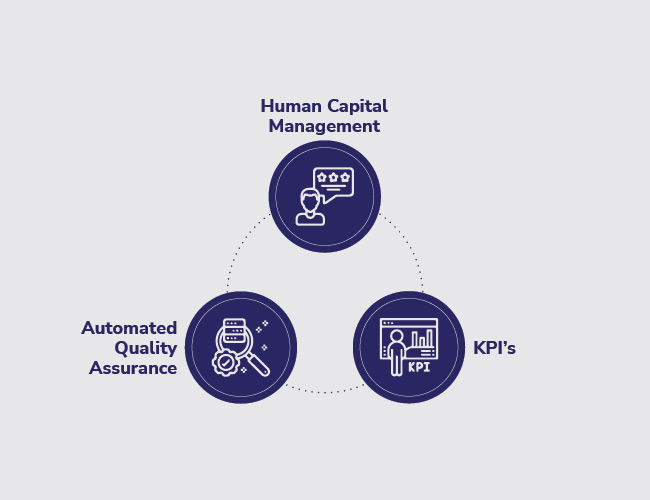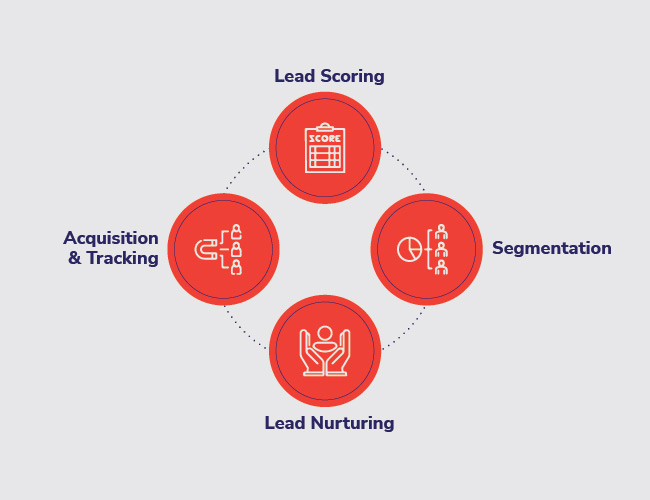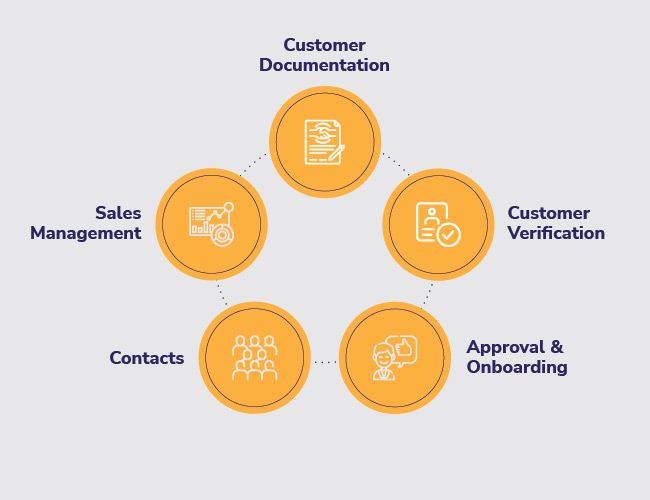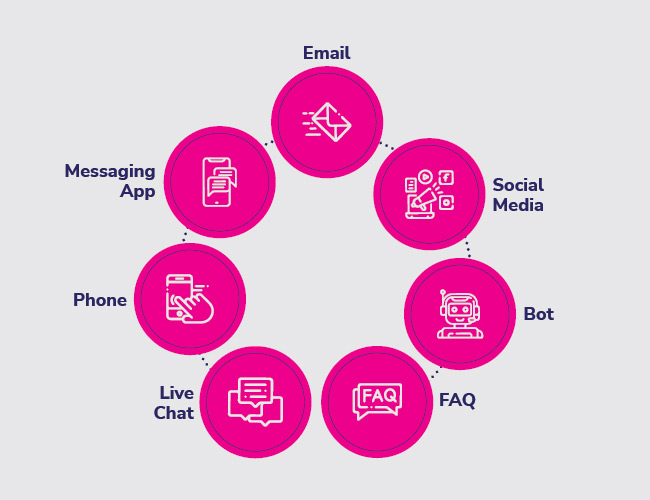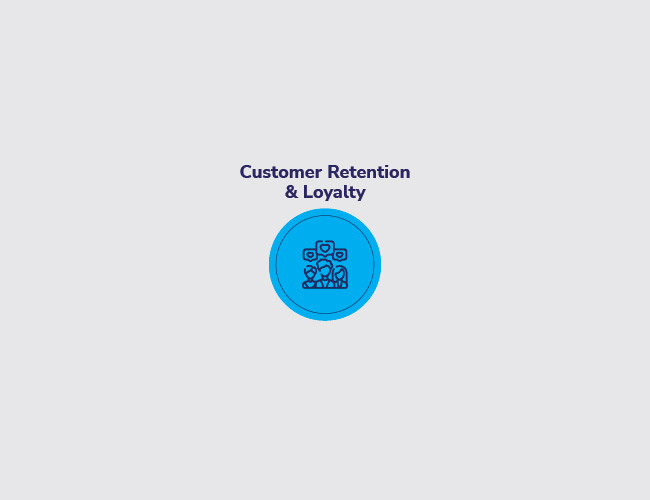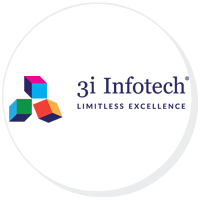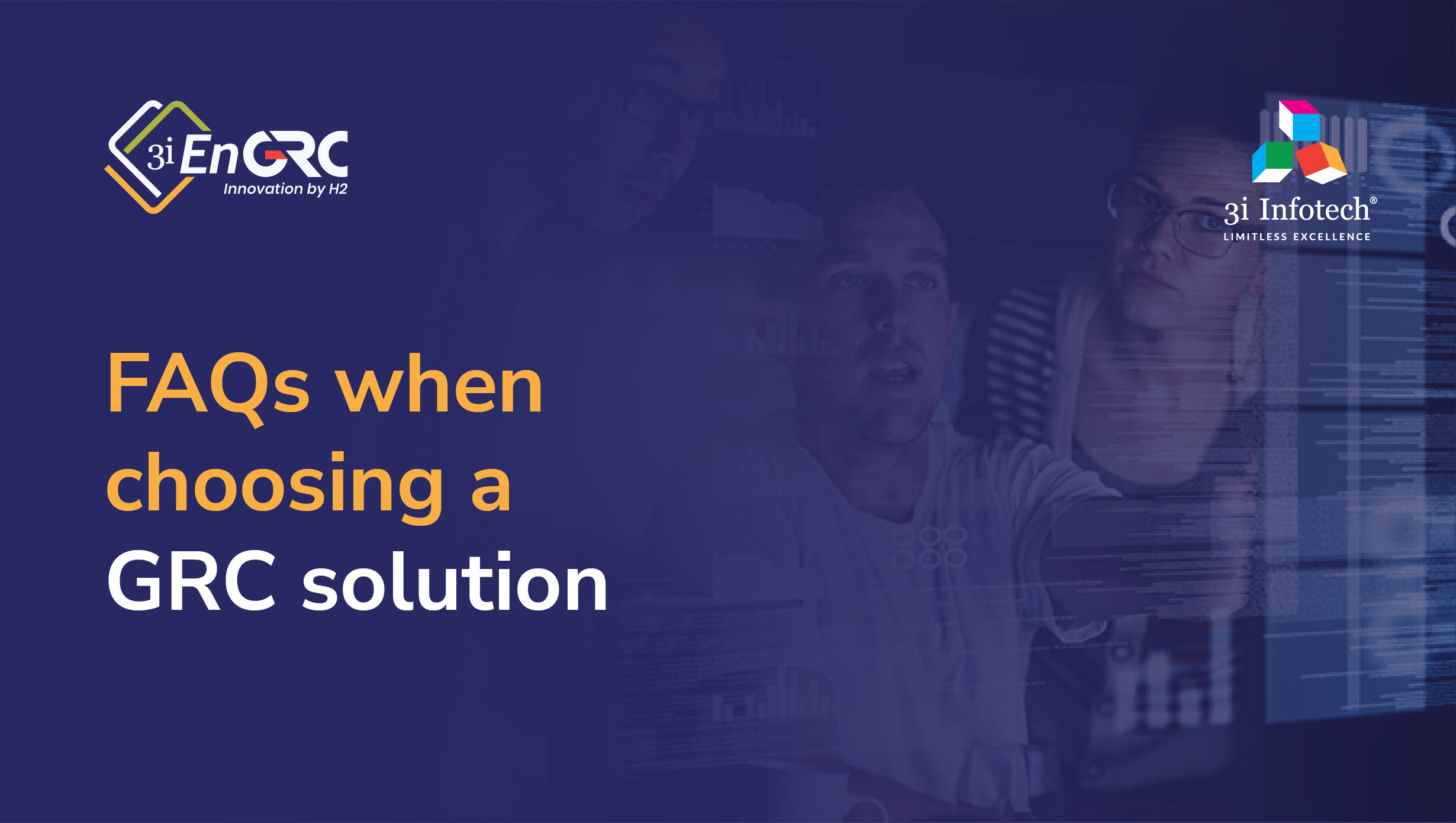
Choosing a GRC Solution which works for you now & in the Future
Organizations across the world, both big and small are increasingly aware of the importance of an enterprise-wide approach to risk, regulatory compliance and internal control management. A modern GRC solution should align an integrated GRC framework to strategic business objectives, make organizations more resilient, enable them to achieve targets, address uncertainties, and respond with integrity without disturbing regular business activities.
A lot has been said and written about GRC platforms and the various modules – risk, compliance and audit they provide. However, there are a few common themes that are part of every conversation we have with our clients when discussing the implementation of a GRC solution. We will briefly address these topics below and go into more detail in the future. The list is not exhaustive but aims to highlight the most frequently asked questions.
It is important to keep in mind that a modular end-to-end, scalable solution which covers all of the GRC requirements from a single vendor has major advantages. It enables the adoption of single risk or compliance modules and the addition of others at a later stage. This allows enterprises to address their immediate needs and build their complete GRC program gradually adding modules or technology advances like AI, ML etc. while having to interact with only one solution vendor.
FAQs
Will It Require A Complex & Lengthy Project To Implement?
Many enterprises have been running their GRC programs using spreadsheets, word documents and emails as well as other tools they use in their daily operations. The disadvantage of these programs is that they are based on silos and have no single source of truth. They also have no audit trail which is becoming a requirement demanded by most regulators and is also useful for management information systems.
Although all of these issues are recognized by most enterprises, there is a reluctance to implement GRC software which would provide a single source of truth, audit trail and automate a lot of their processes. The reason for this reluctance is that there is a concern about IT implementation being a long drawn out, complex process. The costs associated with such an implementation and the time demanded from internal experts for several months is a valid concern.
Solutions that enable fast upload of risks, controls, quick company and user setup with linkage to responsibilities and workflows are ready to use quickly and are the most frequently chosen currently.
Will Our Users Adopt It Or Prefer Their Current Processes?
Many solutions though technically sound do not reflect how risk compliance and audit experts work. As a result, after implementation, user adoption is limited or inconsistent. If users find their previous setup more effective and efficient than the GRC solution being considered, then the cost and effort to implement such a solution is unjustified. An Intuitive user interface is therefore vital for most enterprises when choosing a GRC solution or module.
If lengthy training sessions and regular reference to manuals is required, the solution is not serving the enterprise well. An introduction to the system is all that should be required, and thereafter the user experience should encourage fast adoption and consistent use.
Will It Provide Stakeholders The Insights Required ?
There are several GRC solutions which link their databases to external dashboard providers or report generators. These external plugins provide an extensive library of charts and graphs but can be difficult to setup and deploy for GRC specific purposes. They do not specifically cater to the requirements of GRC experts or stakeholders and so there are several compromises and additional costs involved.
GRC solution dashboards should provide the overviews and details you need to monitor progress and make timely decisions. This information should be displayed in a user friendly and interactive fashion so as to avoid overcomplicating simple overviews while providing sufficient depth.
Reports should be quick to generate and distribute as well as schedule for future periodic generation if required.
Is It Configurable Or Does Every Alteration Require Programming?
This is one of the most important aspects when choosing a GRC solution. Each enterprise has their own terms, labels and other specifics which they require to be reflected in their chosen software. Though it is not always evident at the start, many enterprises have had the experience of needing to wait for several months and incur high costs to achieve alterations they consider minor.
A modern GRC solution is configurable to a large extent and should only require programming for very specific client customization. There is substantial time and costs saving not only at the implementation stage but also over the total period of use of a configurable GRC solution.
Is It Easy To Integrate With Our Core Systems?
It has often been the experience of enterprises that the GRC solution on its own delivers a lot of what is required but is very difficult to integrate with other core systems that are necessary to run their business. Any integration requires a major project with the time and cost involved very difficult to estimate or manage.
Modern GRC solutions are built on flexible architecture which facilitates easy integration with other core systems that a business uses. For example, CRM, Finance, ERP, MIS and other industry specific systems. This is a major advantage as several risk assessments, or control executions can be automated or alerts generated and the workflows to address them automated. KPI or KRI data linked into the GRC solution delivers continuous monitoring and even auditing in some cases.
Is It Future Technology Ready?
Several GRC solution providers started building their platforms 20 or more years ago. These solutions though regularly upgraded are often based on older technology and monolithic architecture. Therefore integrating the current technology advances like AI, ML, NLP, Blockchain, IoT etc. can be a major challenge as each change has complex dependencies and the programming and testing required is very time consuming and expensive.
A modern GRC solution is built on flexible architecture with upgrades achievable in much shorter time frames and integration of new technology as and when required is done cost effectively. These modern solutions are also modular and scalable so that clients are not obliged to implement technology they do not need but still have to pay for. Modules and technology upgrades can be added when needed so no all or nothing decisions need to be made.
Facing the future with confidence
EnGRC is built based on our first-hand knowledge of the day-to-day activities of risk management, regulatory compliance and audit execution. Our aim is to address the primary concerns of organisations in search of a suitable GRC solution. EnGRC is a modular, scalable, configurable solution which is quick to implement, easy to use and provides the dashboards and reporting enterprises want. It has a flexible architecture and is future technology enabled.
Know more. https://www.3i-infotech.com/engrc/
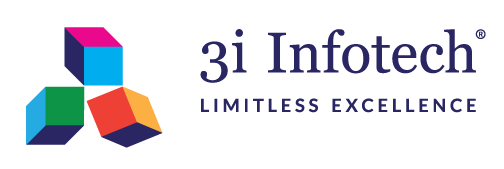
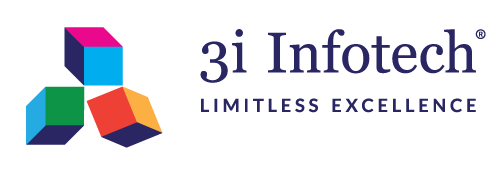
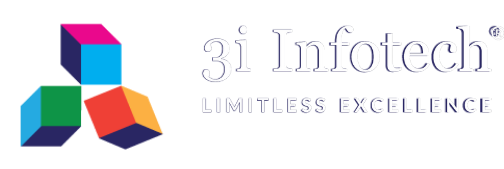
 Harish Shenoy
Harish Shenoy CA Uttam Prakash Agarwal
CA Uttam Prakash Agarwal Mr. Umesh Mehta
Mr. Umesh Mehta Uttam Jhunjhunwala
Uttam Jhunjhunwala
 Ranjit Balakrishnan
Ranjit Balakrishnan Emmanuel N
Emmanuel N Ramu Bodathulla
Ramu Bodathulla

 Rangapriya Goutham
Rangapriya Goutham Kiran Chittar
Kiran Chittar Sushant Purushan
Sushant Purushan
 Nilesh Gupta
Nilesh Gupta Mohan TS
Mohan TS Sanjay Rawa
Sanjay Rawa Dr. Aruna Sharma
Dr. Aruna Sharma Mr.Avtar Singh Monga
Mr.Avtar Singh Monga Mr. Thompson P. Gnanam
Mr. Thompson P. Gnanam Ms. Zohra Chatterji
Ms. Zohra Chatterji Dr. Kalyan Krishnamoorthy
Dr. Kalyan Krishnamoorthy







 Mr. Pravir Vohra
Mr. Pravir Vohra Viraf Sirvala
Viraf Sirvala

 Amrita Gangotra
Amrita Gangotra